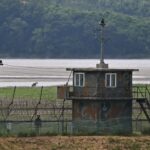The Senate Budget, Appropriations and Finance Committee voted Monday to advance a bill that would raise the territory’s minimum wage through phased increases.
Bill No. 36-0030 would raise the territory’s minimum wage from $10.50 in a phased schedule, starting at $12 an hour on June 1, 2027, increasing to $14 an hour on June 1, 2028, and reaching $15.03 an hour on June 1, 2029, under a revised schedule approved by a committee amendment. The measure now moves to the Senate Rules and Judiciary Committee.
Sen. Franklin D. Johnson, the sponsor of the bill, talked about the importance of this discussion, “These are conversations we definitely have to have. Not want to. It’s a must.”
“If you work in the Virgin Islands, you should be able to live in the Virgin Islands,” Johnson said. “Our minimum wage has been frozen at $10.50 since 2018. The law required annual review by the wage board starting in 2019, yet for seven years nothing moved — meanwhile, everything else did.”
In his testimony, Johnson pointed to steep increases across nearly every major expense facing residents. He noted that the overall cost of living has climbed by more than 39 percent since the last wage increase, with essential categories like food and housing rising sharply.
“We must face a hard truth: the Virgin Islands now rank among the most expensive places to live in the United States, with costs comparable to California and Hawaii. But here’s the difference: those states adjusted their minimum wage regularly. Ours has been stuck for seven years,” Johnson said.
“We cannot ask Virgin Islanders to survive 2025 prices on 2018 wages. This bill is simply asking us to catch up to inflation, catch up to the cost of living, and to do dignity for our workers who deserve it,” he added.
Johnson argued that a phased increase would “provide business with predictability and stability for workers and begin correcting a wage structure that has fallen dangerously out of sync with reality.”
Haldane Davies, director of the Bureau of Economic Research, said that keeping the minimum wage stagnant “usually widens the gaps of income and racial inequalities, and demoralizes the society where people see constant obstacles to advancement, to credit, home ownership, and better days for themselves and their families.” He added that a higher minimum wage “also gives hard working individuals and families across the territory a better likelihood of getting ahead financially and building generational wealth.”
“It is highly probable that a higher minimum wage will boost the local economy by putting more money into the hands of lower wage workers, who are more likely to spend it than business owners on goods and services in the community,” Davies said.
Labor Commissioner Gary Molloy offered inflation-adjusted figures showing how much purchasing power has eroded. “The cost of living in the Virgin Islands has risen sharply over the past decade, but wages have remained the same,” Malloy said. “When we adjust the 2015 minimum wage of 10.50 for inflation, it would equal about $14.40 in 2025, which shows how much buying power workers have lost.”
Molloy also highlighted broader consequences of stagnant wages. “This wage stagnation has also caused many young Virgin Islanders to seek work elsewhere, which weakens our local talent pool and makes it harder for businesses to find and keep qualified workers,” he said.
Some business leaders said they support raising the minimum wage but cautioned lawmakers about potential economic consequences. Scott Barber, board member of the St. Thomas–St. John Chamber of Commerce said the chamber supports increasing the minimum wage from $10.50 to $13 an hour. “We believe that this proposed increase of $2.50 per hour is needed and justified and will not negatively impact the majority of the business community or the economy,” he said.
However, Barber warned that further increases could have significant effects. “The chamber feels that any further increases would definitely have a negative impact on the business community and the economic well-being of our entire community, which would ultimately affect the people of the Virgin Islands with higher costs and higher unemployment,” he said.
He cautioned that raising the minimum wage could lead some employers to reduce hiring. “Raising the minimum wage would increase the cost of employing low-wage workers. As a result, some employers would employ fewer workers than they would have employed under a lower minimum wage,” Barber said.
He cited academic research, noting, “The main findings of economic theory and empirical research over the past 70 years is that minimum wage increases tend to reduce employment. The higher the minimum wage relative to competitive market wage levels, the greater the employment loss that occurs.”
Barber also opposed the bill’s use of automatic, scheduled wage increases, saying the built-in increases could leave businesses unable to respond flexibly to unpredictable events, such as technological changes or natural disasters.
Sen. Marvin A. Blyden emphasized a measured approach to raising wages. “For the good of workers and for the health of the economy, the best approach to the minimum wage is to increase it in small and regular increments, rather than in large chunks,” he said.
Sen. Ray Fonseca also expressed support for the bill, citing both social and economic benefits. “It’s good for the employees, it’s good for the economy. It reduces poverty. So I’m definitely in favor of this,” Fonseca said.
After hearing hours of testimony, the committee voted to move Bill No. 36-0030 forward as amended. The measure now heads to the Senate Rules and Judiciary Committee for further consideration and possible action.
“The passage of this bill is a necessary step towards a stronger, fairer, more prosperous, more resilient, and a more sustainable Virgin Islands for everyone,” said Davies “It is an investment in our people and our collective future. It is also a commitment to the principle that hard work should be enough to afford a decent life in the Virgin Islands.”



